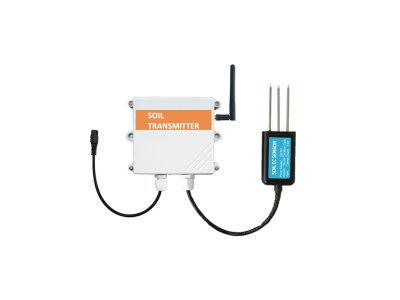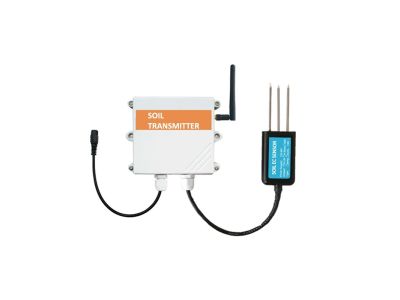Agriculture has come a long way since the days of manual labor and traditional farming techniques. Today, farmers can take advantage of cutting-edge technologies to optimize their practices and improve crop yields. One such technology is soil sensor systems, which enable precision farming practices that enhance efficiency and environmental sustainability. This article will explore the importance of soil sensor systems, their applications in agriculture, and the benefits they bring to farmers.

Understanding Soil Sensor Systems:
Soil sensor systems are composed of various sensors that are placed in the soil to measure different parameters such as moisture content, temperature, pH levels, nutrient analysis, and electrical conductivity. These sensors collect data about the soil, which is then transmitted to a central management system for analysis. The collected data can help farmers make informed decisions about irrigation, fertilization, and overall crop management.
Applications of Soil Sensor Systems:
a. Irrigation Management:
Water is a precious resource, and proper irrigation is essential for maximizing crop yield. Soil sensor systems provide real-time data on soil moisture levels, allowing farmers to optimize irrigation practices. By monitoring soil moisture content, farmers can avoid overwatering or under watering, ensuring that plants receive the right amount of water at the right time. This not only conserves water but also prevents waterlogging and nutrient leaching.
b. Nutrient Management:
Nutrients are vital for plant growth, and soil sensor systems enable precise measurement of nutrient levels in the soil. This information helps farmers apply fertilizers more efficiently and accurately, avoiding excessive or inadequate nutrient supply. By optimizing nutrient management, farmers can reduce costs, minimize environmental pollution, and promote healthy plant growth.
c. Soil Mapping:
Soil sensor systems contribute to the creation of detailed soil maps depicting variations in soil properties across a field. This information aids in site-specific management, where farmers can tailor their practices based on the specific needs of different soil zones within a field. Soil mapping helps optimize seed selection, irrigation scheduling, and fertilizer application, resulting in improved yields and reduced resource wastage.
d. Disease and Pest Management:
Soil sensor systems can also assist in disease and pest management by detecting early warning signs. Some sensors can measure soil pathogens or indicators that may signify the presence of pests or diseases. This allows farmers to take proactive measures, such as adjusting crop rotation, applying targeted treatments, or implementing biological control methods, to prevent the spread and damage caused by pests and diseases.
Benefits of Soil Sensor Systems:
a. Increased Efficiency:
Soil sensor systems enable precise and targeted resource management, reducing unnecessary inputs and optimizing yields. Farmers can make data-driven decisions regarding irrigation, fertilization, and pest management, resulting in improved efficiency and cost savings.
b. Environmental Sustainability:
By using soil sensor systems, farmers can minimize the use of water, fertilizers, and pesticides, reducing the environmental impact of agriculture. Precision farming practices, supported by soil sensor systems, promote sustainable farming methods, preserving natural resources and minimizing pollution.
c. Improved Crop Quality:
Soil sensor systems provide valuable insights into soil health, allowing farmers to create optimal growing conditions for crops. By ensuring the right balance of nutrients, moisture, and pH levels, farmers can enhance crop quality, taste, and nutritional value, meeting consumer demands and increasing market competitiveness.
d. Enhanced Decision-making:
Soil sensor systems provide farmers with accurate and up-to-date information about their fields. This helps them make informed decisions based on real-time conditions, mitigating risks and maximizing productivity. Farmers can adjust their practices according to specific soil conditions, leading to more effective crop management strategies.
Future Directions and Challenges:
While soil sensor systems have proven to be a valuable tool in agriculture, there are still challenges to overcome. These include sensor accuracy, calibration requirements, data interpretation, and the need for interoperability among different sensor systems. Additionally, the cost and accessibility of soil sensor systems may pose barriers for some farmers. However, ongoing research and development efforts are addressing these challenges, with advancements in sensor technologies and data analytics.
Looking ahead, the future of soil sensor systems in agriculture is promising. Integration with other technologies such as remote sensing, drones, and artificial intelligence will further enhance their capabilities. Smart farming systems that combine multiple data sources will provide farmers with comprehensive insights into soil health, enabling even more precise and sustainable agricultural practices.
Conclusion:
Soil sensor systems have emerged as a game-changer in agriculture, empowering farmers to maximize crop yield and optimize resource management. By providing real-time data on soil parameters, soil sensor systems enable farmers to make informed decisions about irrigation, fertilization, and pest management. This technology offers numerous benefits, including increased efficiency, environmental sustainability, improved crop quality, and enhanced decision-making. As technology continues to advance and become more accessible, soil sensor systems will play an increasingly vital role in shaping the future of agriculture, ensuring food security while preserving the health of our planet.






